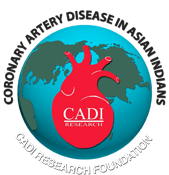Treatment of Hypertension
- Management of hypertension represents one of the most important therapeutic successes of the past 50 years. The capability now exists to lower blood pressure effectively with reltively minimal adverse effects in most people with hypertension.1
- Although it is better to have a blood pressure goal of < 120/80 for all individuals, the minimum goal is <140/90 with lower goals for high-risk individuals.2
- The initial strategies for management involve lifestyle changes focusing on reduction of dietary salt, fat, and alcohol and an increase in potassium, fruits, and vegetables. Weight management and reduction in obesity and truncal obesity, regular physical exercise, and tobacco cessation are equally important.
- Of all the lifestyle measures, sodium restriction has the most profound effect on blood pressure.
- Prescription medications are often needed in addition to lifestyle in most people with high blood pressure. Management should focus on comprehensive risk reductions (such as smoking cessation and treatment of lipid disorders) for better prognosis.3
- The choice of medicines depends on age, the overall cardiovascular risk, and other co-existing diseases/conditions. Beta-blockers have been used in the treatment of CVD (cardiovascular disease) for decades and remain a good medication for treatment of blood pressure in people who have had a heart attack.
- The new generation of beta-blockers (i.e., carvedilol and nebivolol) may ameliorate some of the concerns associated with traditional beta-blockers (such as atenolol). These adverse effects include metabolic and lipid parameters, including an increased risk for new-onset diabetes.4
- In view of heightened risk from blood pressure the new consensus statement from the second International Society on Hypertension in Blacks recommends lower targets for blood pressure in blacks than that is recommended for whites. (See Hypertension in Blacks).
- Non-adherence to hypertension medication remains one of the greatest roadblocks in the effective control of hypertension and CVD prevention. In a recent study of hypertensive adults, 50% were non-adherent to their medication requirements.
- The top barriers to adherence included: a patient’s perception of the ability to access medication (83%), affordability of medication (79%), the ability to remember all prescribed doses (62%), and difficulty in getting a refill on time (55%). Also, 39% of patients don’t believe in the effectiveness of the medication prescribed. “Medication adherence and associated barriers in hypertension management in India” CVD Prevention and Control 2011; 6:9-13
- Physicians can reduce non-adherence by simplifying the treatment regimen by giving combination pills containing two or three medications.
FAQ
Q. What is resistant hypertension?
A. The current definition of Resistant Hypertension is blood pressure (BP) remaining above goal despite the use of ≥3 antihypertensive agents of different classes, including a diuretic, or BP that is controlled requiring ≥4 antihypertensive medications.
Sources
1. Chobanian AV, Bakris GL, Black HR, et al. The Seventh Report of the Joint National Committee on Prevention, Detection, Evaluation, and Treatment of High Blood Pressure: the JNC 7 report. Jama. 2003;289(19):2560-2572.
2. Chobanian AV. Mixed messages on blood pressure goals. Hypertension. Jun 2011;57(6):1039-1040.
3. Gupta R, Guptha S. Strategies for initial management of hypertension. Indian J Med Res. Nov 2010;132(5):531-542.
4. Ram CV. Beta-blockers in hypertension. Am J Cardiol. Dec 15 2010;106(12):1819-1825.

